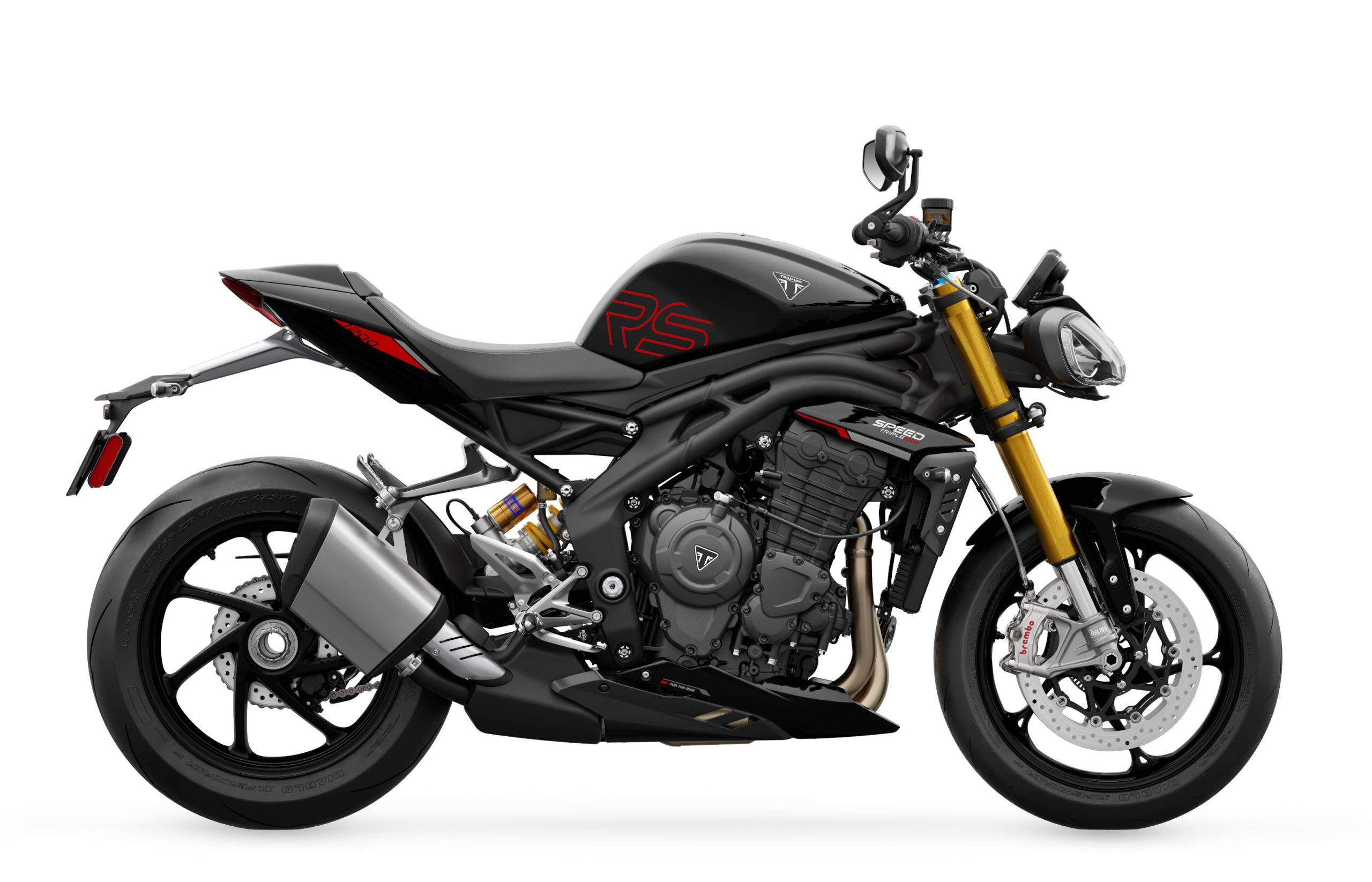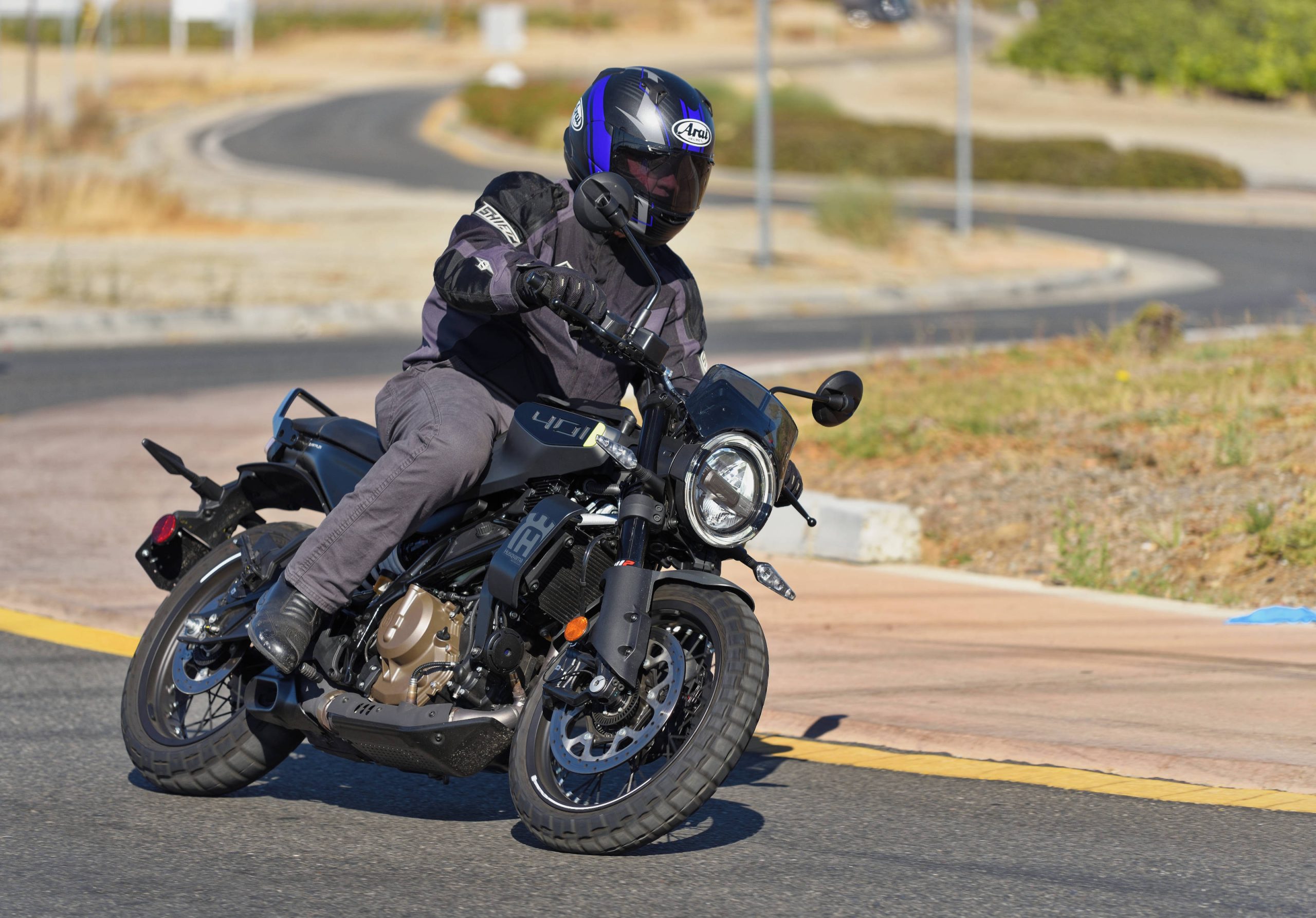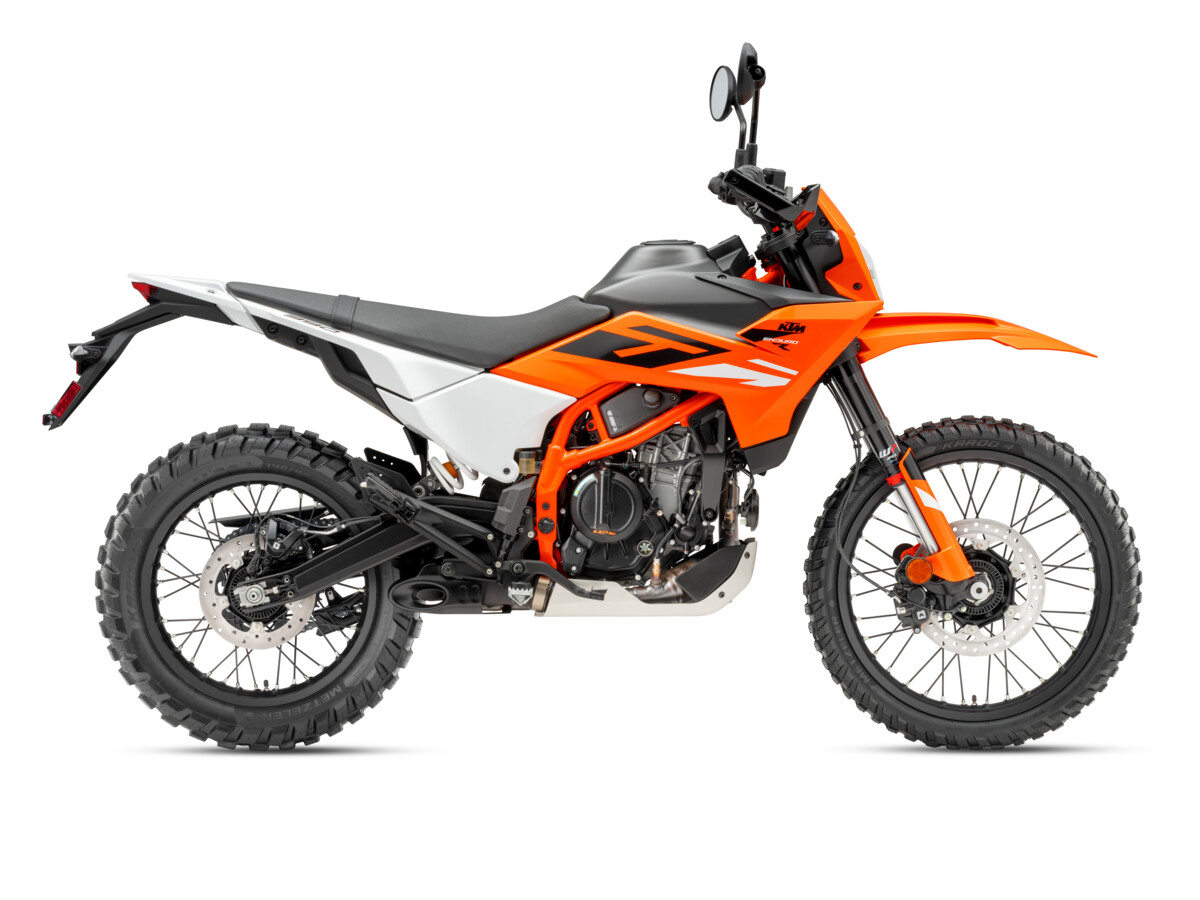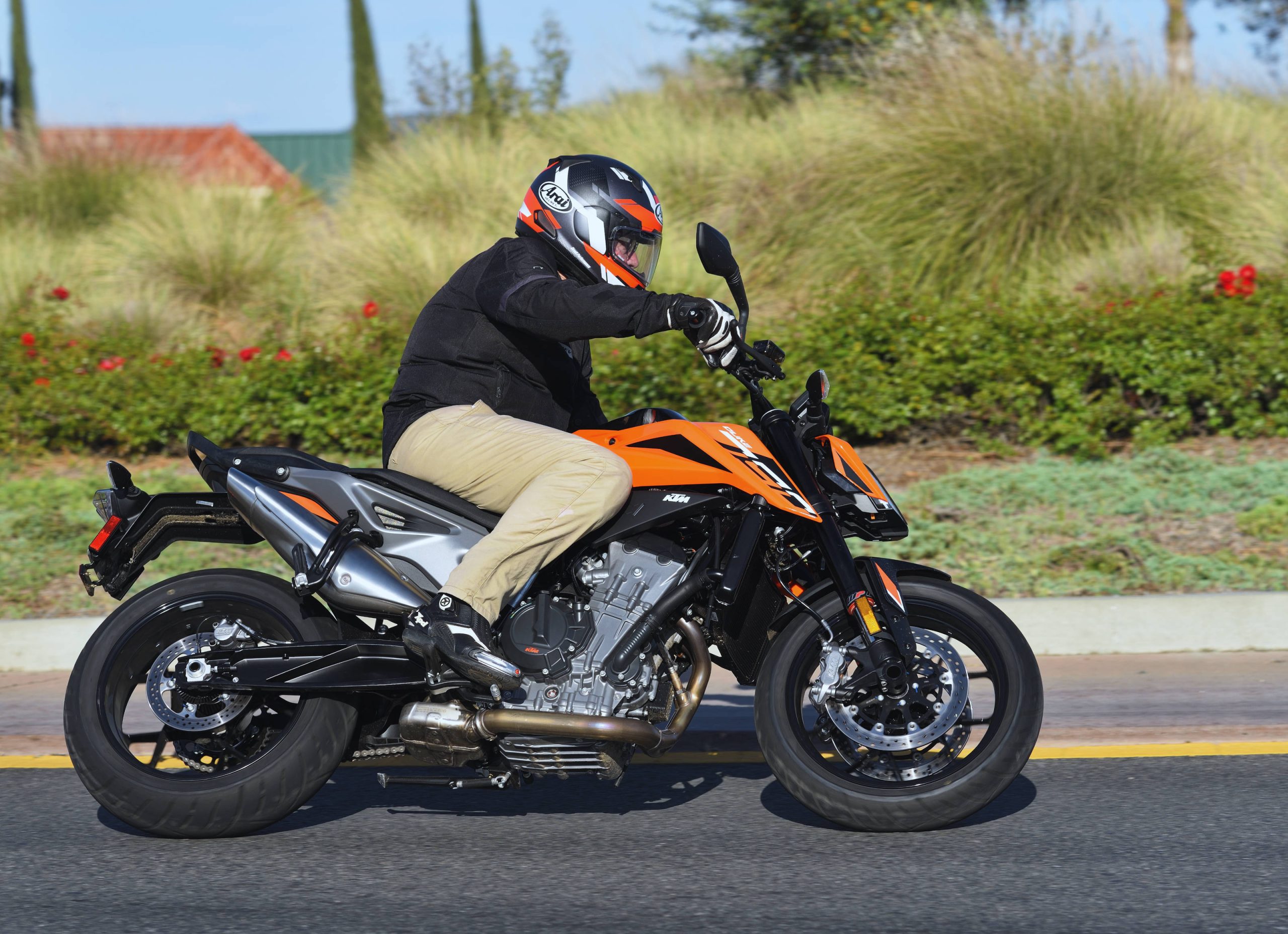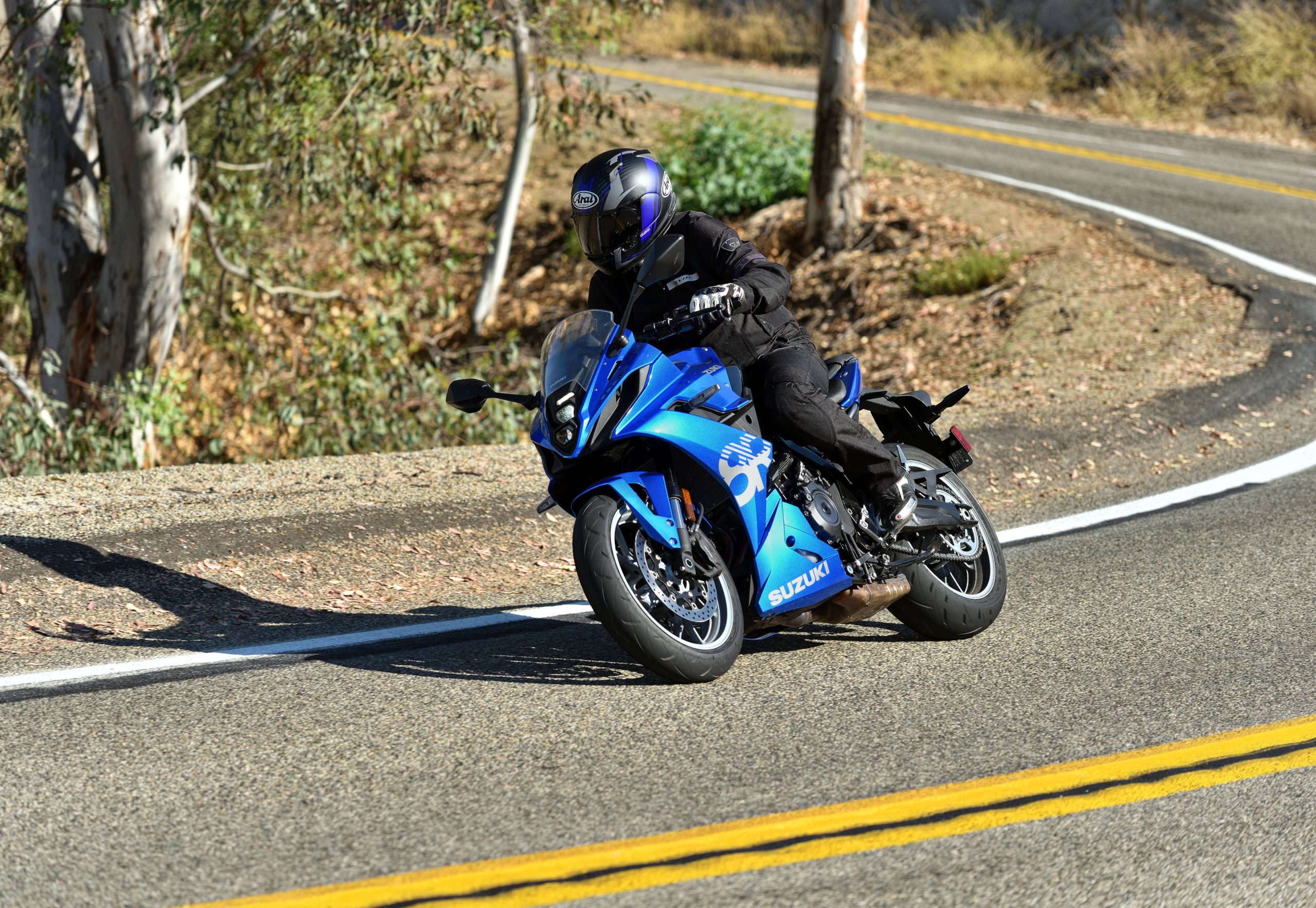by Dirck Edge
A couple of days ago, I wrote briefly about my impressions of the 2000 Honda VFR800 Interceptor. Overall, I put about 250 miles on the bike, including Southern California freeway riding, high speed “pursuit” (remember, I was trying to keep up with a Yamaha R1 and a Honda CBR900RR), and twisty mountain roads.
Adding to what I said earlier, I want to make the following comments. In searching for the “perfect street bike”, combining as many attributes as possible, the Honda VFR800 Interceptor inevitably comes to mind. Instead of just a “jack of all trades”, it strives to be “master of all trades”. Does it succeed?
It does an awfully good job, but some of the newer sportbikes, in my opinion, are a better choice. Why? Because they combine lighter weight, better handling, and reasonably comfortable seating positions (leaving aside the Yamaha R1 and Ducati 996, at least).
I’m thinking primarily of Honda’s own CBR600F4, for example, which is vastly lighter (approximately 80 pounds) than the 800 Interceptor, handles better (in large part due to its lightness) and is almost as fast (despite giving away nearly 200cc in displacement). Another good choice might be Kawasaki’s ZX6R or ZX9R. The 6R might lack the refinement of the Honda F4, so, if you’re inclined toward a 600, the F4 might be a better choice. If you want, once again, far lighter weight than the 800 Interceptor, with even more midrange and peak horsepower, the Kawasaki ZX9R (roughly 55 pounds lighter) might be an excellent choice.
These bikes offer reasonably comfortable ergonomics for long rides with decent wind protection. True, the VFR is a little bit better in the comfort department, but the handling and performance of the lighter bikes outweigh this, in my opinion.
The VFR does have loads of charm, however, coming from its unique V-4 engine configuration and the resulting sound — which is simply fabulous! It’s hard to describe the sound of a VFR. I once heard it described as being similar to a small-block Chevy V-8, but it is truly unique.
Engine sound is no small matter. It lends character to the bike, and a certain familiarity. The slightly heavier VFR can also be a superior freeway cruiser (although, I only see an advantage in battling side winds).
All in all, I thoroughly enjoyed the VFR, and, for the power delivery and engine note alone, I wouldn’t discourage you from buying one. The handling is excellent also and, as a friend recently pointed out to me, you ought to see Freddy Spencer or Reg Pridmore take an Interceptor around a race track. The bike is no slouch in the handling department. I simply feel that the sportbike wars have led to reasonably comfortable and extremely lightweight machines that are a better substitute for many riders.
By the way, the linked braking system on the Interceptor is interesting. At first, having forgot about the linked brakes, I thought there was something wrong with the brakes. I basically didn’t like them. After remembering that the rear brake was being applied slightly while pulling the front brake lever, I began to pay closer attention to what was happening with the attitude of the bike during braking. Ultimately, I liked the linked brakes (which bailed me out in one particular instance when I got into a corner a bit too hot). The application of the rear brake seems to settle the bike and, after you get used to a lack of dive when applying the front brake, and its associated handling characteristics, you can learn to appreciate the linked brakes.
There are situations, however, where you might like to apply rear brake only. You cannot do this on an 800 Interceptor, and this could conceivably create a problem (in gravel or slime, for example, where you want the front wheel to track without any braking forces).

